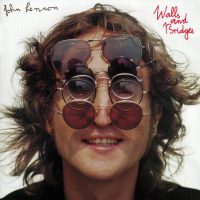
Recorded: July-August 1974
Producer: John Lennon
Released: 4 October 1974 (UK), 26 September 1974 (US)
Available on:
Walls And Bridges
Menlove Ave
John Lennon Anthology
Personnel
John Lennon: vocals, acoustic guitar
Jesse Ed Davis: electric guitar
Eddie Mottau: acoustic guitar
Ken Ascher: piano, Mellotron
Klaus Voormann: bass guitar
Arthur Jenkins: percussion
Jim Keltner: drums
John Lennon’s most reflective ballad on his Walls And Bridges album was a love song written for his estranged wife Yoko Ono.
Although Lennon spent much of 1973 and 1974 living with May Pang, his thought were never far from Ono. At least three songs on Walls And Bridges – ‘Going Down On Love’, ‘What You Got’, and ‘Bless You’ – were written about her, and her absence informed much of the reflective tone of his other works of the time.
In a way, it’s about Yoko and I, and in a way it’s about a lot of couples or all of us who go through that, whatever it’s called, love experience. You know, the way love changes, which is one of the surprises of life that we all find out: that it doesn’t remain exactly the same all the time, although it’s still love. It comes in mysterious forms, its wonders to perform. And ‘Bless You’ expresses one side of it.
During their time apart Ono dated session guitarist David Spinozza, who had played on Lennon’s album Mind Games in 1973. Spinozza also contributed to her albums Feeling The Space and A Story, recorded during the same period. During the Lost Weekend Lennon was unaware of their relationship, but devoted some lines from ‘Bless You’ to them: “Bless you whoever you are/Holding her now/Be warm and kind hearted.”
Lennon spent 10 days rehearsing a set of songs prior to recording Walls And Bridges. Among them was ‘Bless You’; this version was released in 1986 on Menlove Ave. Even more rueful than the album version, the basic recording found his backing band finding their way around the chord changes.
Shortly after the release of Walls And Bridges, Lennon described it as the best song on the album.
As a song, I think it’s the best piece of work on the album, although I worked harder on some of the other tracks. In retrospect, that seems to be the best track, to me.
An alternative take from the studio sessions was included on the 1998 box set John Lennon Anthology. Somewhere between the raw rehearsal and the polished final take, it showed how Lennon was aiming for a simpler production than his earlier albums with Phil Spector.
Lennon later revealed his belief that The Rolling Stones’ 1978 song ‘Miss You’ was based on ‘Bless You’, although the resemblance is difficult to hear.
‘Bless You’ is again about Yoko. I think Mick Jagger took ‘Bless You’ and turned it into ‘Miss You’. [singing] ‘Wherever you are, child on a shooting star.’ The engineer kept wanting me to speed that up – he said, ‘This is a hit song if you’d just do it fast.’ He was right. ’cause as ‘Miss You’ it turned into a hit. I like Mick’s record better. I have no ill feelings about it. I think it’s a great Stones track, and I really love it. But I do hear that lick in it. Could be subconscious or conscious. It’s irrelevant. Music is everybody’s possession. It’s only publishers who think that people own it.
All We Are Saying, David Sheff


Actually, “Miss You” is a speeded up version of “Scared” (same kind of changes), which is the song that follows “Bless You” on this magnificent album.
Good Call. I was thinking the same exact thing.
Bless You seems heavily inspired by My Cherie Amour, the 1969 Stevie Wonder hit.
And indeed as John says: “Could be subconscious or conscious. It’s irrelevant. Music is everybody’s possession. It’s only publishers who think that people own it.”
it bears literally no resemblance to my cherie amour in any way.
Mick’s “Miss You” melody is very similar to the melody in “Bless You” (not “Scared”), as John said.
When I first listened to this, it thought it was about Paul.
I thought that too. Probably because of the reference to Wings coupled with an intro that sounds a lot like the intro to Band on the Run. Also the lyric “love is strange,” brought immediately to mind the Buddy Holly song both the Beatles and Wings covered. Maybe the use of the word “darling” as well. Whenever I see John Lennon use it, I think of Paul’s “Oh, Darling.” But maybe that’s a stretch.
To be honest, I still think it might’ve been about him too, at least subconsciously. After all during the time John wrote it, the idea of working with Paul again was heavy on his mind and I don’t see why the song shouldn’t have a double meaning- plus it makes sense for him to not admit that in the media, because it would’ve fueled the rumors of a (partial) Beatles reunion even more.
I did too and still do. It’s probably my favorite solo John ballad.
He was born to be loved! and I love him